“All Men Are Born Free By Nature”: Theological Conceptions of Freedom
by Tamer Nashef
Filed under History, Uncategorized

The development of the concept of freedom as an inalienable human right is undoubtedly a hallmark of modernity and one of Western civilization’s most deservedly celebrated achievements. John Milton (1608-1674), the English poet and author of one of the masterpieces of the English language Paradise Lost, regarded freedom as a God-given right rather than as a privilege vouchsafed upon the subjects by their rulers at a whim. Freedom “is not Caesar’s,” Milton wrote, “but is a... Read More
The Idea of Progress: A Comparative Study
by Tamer Nashef
Filed under History
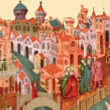
The pre-eminence of progress in the history of ideas and of Western civilization in particular cannot be overstated. This vastly important idea essentially means that the trajectory of human history is linear and forward-directed rather than cyclical or regressive. It holds that each generation advances beyond its predecessor and, therefore, the human condition improves over time amid the accumulation of scientific and technological knowledge. We tend to take the idea of progress for granted,... Read More
How Christians—Not the “Enlightenment”—Launched the Age of Reason
by Brandon Vogt
Filed under History

As we all know, and as many of our well established textbooks have argued for decades, the Dark Ages were a stunting of intellectual progress to be redeemed only by the secular spirit of the Enlightenment. The Inquisition was one of the most frightening and bloody chapters in Western history; the religious Crusades were an early example of religious thirst for riches and power; and Pope Pius XII was anti-Semitic and rightfully called “Hitler’s Pope.” But what... Read More
What Has Christianity Ever Done for the West?
by Tamer Nashef
Filed under History
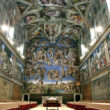
As Christmas and the holiday season draw near, it is time to take a pause and think deeply about the benefits that Christianity, particularly Catholicism, has conferred upon Western civilization. As a non-Westerner and non-Christian who has no ax to grind in this issue, I believe I can offer a fairly objective assessment of the impact that Christian ideas (some of which had pagan/Jewish precedents) have had on the evolution of Western civilization and their key role in the West’s spectacular... Read More
Bart Ehrman’s Botched Source
by Jimmy Akin
Filed under History
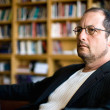
Atheist scholar Bart Ehrman is a smart guy, but he sometimes handles his sources in the most frustrating and misleading manner. For example, in his 2012 book Did Jesus Exist?: The Historical Argument for Jesus of Nazareth (where he is on the right side for once), he writes: Several significant studies of literacy have appeared in recent years showing just how low literacy rates were in antiquity. The most frequently cited study is by Columbia professor William Harris in a book titled... Read More
Philosophy in the Eyes of Theologians: Friend or Foe? (Part 3 of 3)
by Tamer Nashef
Filed under History, Religion
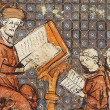
NOTE: Today we conclude our three part series from Tamer Nashef on the relationship between philosophy and theology. Tamer's previous piece at Strange Notions, "I’m a Muslim But Here’s Why I Admire the Catholic Church", remains one of our all-time most popular posts. The third and last segment of the essay will shed light on the brilliant theologians of the cathedral schools and 12th-century Renaissance. The theologians in question include Peter Abelard, Adelard of... Read More
Philosophy in the Eyes of Theologians: Friend or Foe? (Part 2 of 3)
by Tamer Nashef
Filed under History, Religion
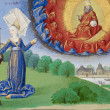
NOTE: Today we continue our three part series from Tamer Nashef on the relationship between philosophy and theology. Tamer's previous piece at Strange Notions, "I’m a Muslim But Here’s Why I Admire the Catholic Church", remains one of our all-time most popular posts. The first part of the essay set forth the attitude of the Christian theologians of Late Antiquity toward reason and pagan philosophy. We noted that they viewed reason and philosophy as “handmaidens”... Read More
Philosophy in the Eyes of Theologians: Friend or Foe? (Part 1 of 3)
by Tamer Nashef
Filed under History, Religion
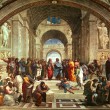
NOTE: Today we begin a three part series from Tamer Nashef on the relationship between philosophy and theology. Tamer's previous piece at Strange Notions, titled "I’m a Muslim But Here’s Why I Admire the Catholic Church", remains one of our all-time most popular posts. This three-part essay sets out to explore the complex yet fascinating relation between Christianity (particularly Catholicism) and faith on the one hand and reason and philosophy on the other. It is commonplace... Read More
Is Religion Evil? Secularism’s Pride and Irrational Prejudice
by Carl Olson
Filed under Christianity and Violence

The common wisdom in many circles (most located in certain cities on the East and Left Coasts) is that religion, in general, is a bad thing, and that in the hands of "fundamentalists," the Ku Klux Klan, neo-Nazis, and ultra-super-radical-Islamic terrorists, it is inevitably evil. Eliminating religion, it is then suggested or even openly argued, is a sure way to rid the world of evil. The term "religion," it should be noted, almost always refers to Christianity (or a form of pseudo-Christianity)... Read More
I’m a Muslim But Here’s Why I Admire the Catholic Church
by Tamer Nashef
Filed under History, The Church

First, allow me to start this short article with what might be deemed a startling confession: I am not a Catholic, nor am I even a Christian. In fact, I am a secular Muslim and an avid reader of philosophy and history with an unswerving commitment to the unmitigated truth no matter where it is even, nay especially, if it runs counter to commonly held beliefs. I have spent the last few years researching the history of Christianity, especially the Catholic Church in the Middle Ages, and... Read More






